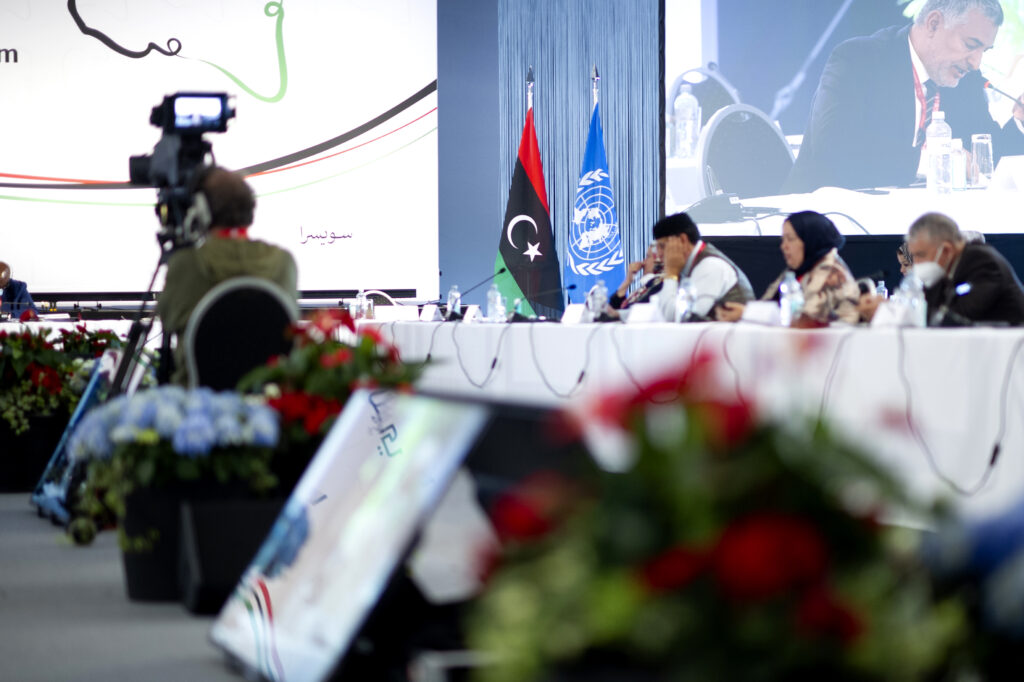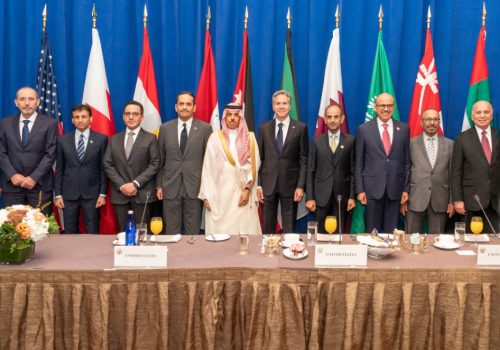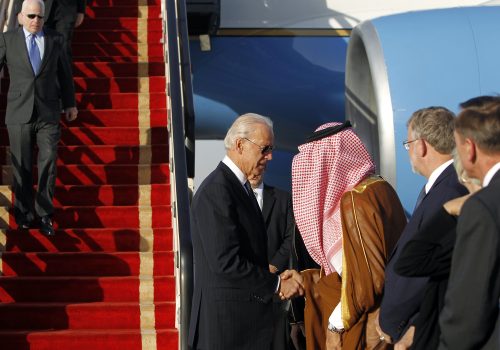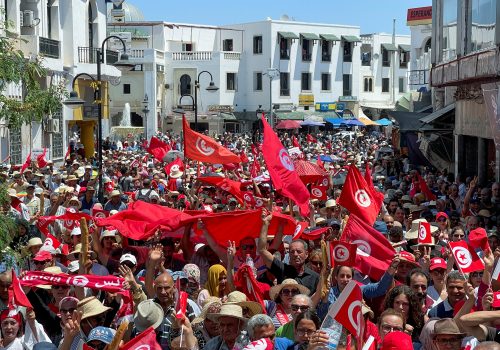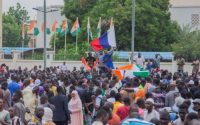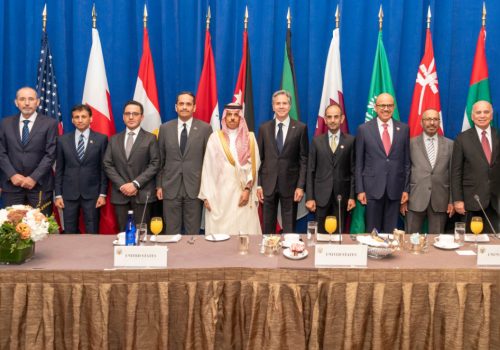
The UN should take a bolder stance in Libya
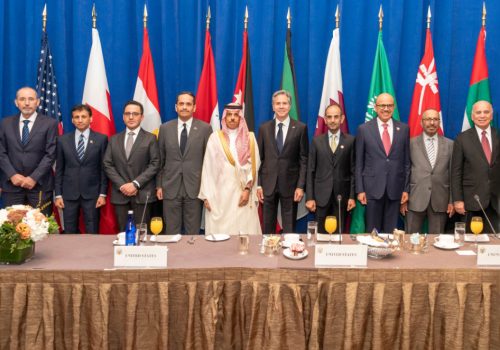
The two main armed conflicts of the last two years—in Gaza and Ukraine—have led to the belief that international politics are ruled again by sheer force and that the United Nations is no longer a relevant actor. Libya, where international rules have been violated periodically in the last decade, represents one of the first examples of the ongoing dismantling of the global order. At the same time, the Libyan case is unique in that the UN has played a key role in shaping the political configuration of the North African country, not always necessarily in a positive way.
From the authorization of the 2011 military intervention to the creation of the Governments of National Accord and Unity, the UN has had successes but also relevant failures in Libya. The recent resignation of UN Special Representative Abdullah Bathily points to the need for the UN to move beyond interim agreements between elites and to take a bolder stance. The volatile state of global affairs makes progress in Libya uncertain. Still, it is clear that the iteration of past mistakes in the transition process will not lead to a different outcome.
From the 2011 revolution to the arms embargo
The current situation in Libya can be traced back to the 2011 NATO-led military intervention, sanctioned by UN Security Council Resolution (UNSCR) 1973 (2011), and that led to the fall of Muammar Gaddafi’s regime. Under the premise of the Responsibility to Protect (R2P), the UN mandated the international community to establish a no-fly zone to protect civilians against war crimes carried out by Gaddafi’s army. However, as the situation deteriorated, the mission turned into a full-fledged regime-change operation, and Russia and China criticized what they saw as a breach of the scope of the resolution. Ever since, consensus within the Security Council on Libya has been elusive, and at the global level, the concept of R2P will likely remain on the shelf for a long time.
The UN’s role in Libya is described mainly in UNSCRs 1970 (2011), 1973 (2011), and 2009 (2011) and can be summarized as follows: the establishment of an arms embargo, an assets freeze, and a travel ban; the creation of a Sanctions Committee and a Panel of Experts (PoE) to monitor the situation on the ground; a referral to the International Criminal Court for crimes committed during and after the civil war; and, most importantly, the creation of a body to promote political dialogue and the reestablishment of state authority. UNSCR 2146 (2014) also calls for UN member states to inspect high-sea vessels to prevent the illicit export of crude oil from Libya, a decision adopted days after the oil tanker MV Morning Glory departed from Cyrenaica without the consent of the authorities in Tripoli.
When it comes to the arms embargo, its lack of an enforcement mechanism is responsible for the current situation in Libya, much more than the looting of arsenals following the collapse of Gaddafi’s regime. Divisions among Security Council members and at the European Union, competition between Turkey and the United Arab Emirates in the aftermath of the Arab Spring, and the growing US disinterest in the Middle East and North Africa region are all factors that explain why the continuous flow of weapons has not been halted. The nine reports of the UN PoE detail persistent violations that have not been followed by specific actions and point directly at, among others, the responsibility of Russia, a veto-wielding permanent member of the Security Council. Interestingly, the embargo was the first to include a specific clause banning “the provision of armed mercenary personnel.” Despite this stipulation, today, Libya has become one of the main bases of operations for the Wagner Group, a Russian mercenary group now operating under the banner of Africa Corps.
Guiding the peace process: The role of the United Nations Support Mission in Libya
Unlike with the embargo, the UN has taken a leading role in the transition process by creating a support mission, the United Nations Support Mission in Libya (UNSMIL) and appointing six consecutive special representatives to the secretary-general. In its current form [UNSCR 2542 (2020)], the tasks of UNSMIL are to further political dialogue and guide the transition process, help maintain the ongoing cease-fire, and support key Libyan institutions, including securing uncontrolled arms. The latter state-building element of the mission has been watered down through the years, with an initial mandate to “restore public security and promote the rule of law” that never met its expectations. In practice, UNSMIL offers a setting for Libyan elites to bargain for political and economic influence.
The drafting of the Libyan Political Agreement (LPA) in Skhirat, Morocco, and the subsequent creation of the Government of National Accord (GNA) in 2015 were UNSMIL’s first major achievements, which nevertheless had little success beyond signaling to the international community who was Libya’s legitimate authority. This failure can be attributed to the weak institutional legacy of Gaddafi’s hyper-personalist regime and, most importantly, to foreign meddling. UN special representatives have constantly complained about the role of third actors in funneling arms and money into the conflict. For instance, Ghassan Salamé, who served as UN special representative from 2017 to 2020, described Libya as “a textbook example of foreign interference.” However, some inherent flaws in the design of the LPA can also be blamed on the UN.
The main weakness of the UN-inspired political agreement is that it prioritized political reunification at the expense of legal, economic, and security sector reform. This made the GNA dependent on the goodwill of militias, while counterfeit banknotes continue to this day to flow into the Libyan market. Neither did UNSMIL push for the drafting of a definitive constitutional text, and in its absence, the LPA now appears to act as the top of the Libyan normative hierarchy. Another caveat of the UNSMIL strategy was to include all major political factions within the framework of the LPA, ossifying institutions with little popular legitimacy, including the House of Representatives (HoR), which was elected a decade ago with a voter turnout of 18 percent. In addition, the emphasis on local and regional representation (for instance, within the Presidential Council, whose three members represent Libya’s three historical regions) has turned into local parochialism and clientelist competition.
The fact that all actors on the ground have international support has forced UN special representatives to be pragmatically dovish. But at times, it appears they have become victims of their narrative, ignoring bellicose behaviors and focusing on “reconciling” rivals that already have tacit understandings of how to share Libya’s riches. This is most evident in the case of Khalifa Haftar and his self-styled Libyan Arab Armed Forces (LAAF), whose 2014 power grab was decisive in the collapse of Libya’s transition. UN personnel have periodically traveled to Haftar’s headquarters in Rajma, east of Benghazi, despite the irregular nature of the LAAF and its links with war crimes and human rights violations. In 2015, the HoR appointed Haftar as supreme commander of the Libyan army. Still, the LPA is clear that this process should have been done through a joint committee also comprising the executive and the upper chamber, the High Council of State. The fact that Haftar launched his 2019 offensive on Tripoli the same day UN Secretary-General António Guterres was on a visit to eastern Libya is evidence of his disdain for the organization.
By 2018, conferences in Paris and Palermo had shifted the international debate, emphasizing the need for organizing elections in Libya. This was a desire equally shared by the population, as confirmed in consultations organized by UNSMIL in the context of a new Libyan National Conference. Following the collapse of Haftar’s campaign on Tripoli, however, the UN mission organized a voting process with seventy-five electors instead of pushing ahead with the plebiscite. This Libyan Political Dialogue Forum (LPDF) was to choose a new Government of National Unity (GNU) to organize presidential and parliamentary elections by December 24, 2021. In this sense, while the forum was another significant UN-led turning point, it seemed to replicate previous mistakes, extending an endless interim period and bringing to the table those most interested in maintaining the status quo. Some even described the LPDF as a rendezvous between “dinosaurs” and “kleptocrats.”
In addition to the questions of representativity, including the underrepresentation of women, the UN was not able to effectively address the allegations that the chosen and current Prime Minister Abdulhamid al-Dabaiba had bribed his way to power. If this was not enough, the HoR soon withdrew its recognition of the GNU, returning Libya to the previous stalemate and rendering the whole process pointless. As time passed, it became evident that neither Dabaiba nor the HoR felt particularly pressed to hold the election by December 2021. Surprisingly, before his resignation in April 2024, Bathily, who served as UN special representative from 2022 to April 2024, was working on yet another transitional government, ignoring the aspirations of the population and the already-expired UN-proposed election timeline.
The UN must break the Libyan impasse
International norms and institutions are being challenged worldwide. However, this does not make the UN a mere bystander, and it is certainly not the case in Libya. Willingly or not, all Security Council members made Gaddafi’s downfall possible and failed to agree on embargo measures to stop the flow of weapons into Libya. Regarding the transition process, UNSMIL has inadvertently trapped Libya in a far-too-complex institutional web.
Bathily’s farewell declaration describes Libya as a “mafia state” dominated by political and military elites that follow their narrow interests. It points to the need for a new UNSMIL strategy, moving beyond the emphasis on reconciliation and pact-making and instead pushing for elections and accountability. The UN should not push for the creation of a third transitional executive, giving its seal of approval to yet another clique of elites. At the very least, this principled stand would raise awareness of the situation on the ground, and it could serve as revulsive in the otherwise endless political impasse.
Álvaro de Argüelles is a PhD candidate at Universidad Autónoma de Madrid (UAM), Spain. He holds a double major in international studies and law from Universidad Carlos III de Madrid and a master’s degree in Arab and Middle Eastern studies from UAM. Argüelles is a board member of the Foro de Investigación sobre el Mundo Árabe y Musulmán.
In partnership with

Related content
Image: Libyan Political Dialogue Forum, Switzerland, 28 June – 01 July 2021. 29 june 2021. UN Photo/Violaine Martin
